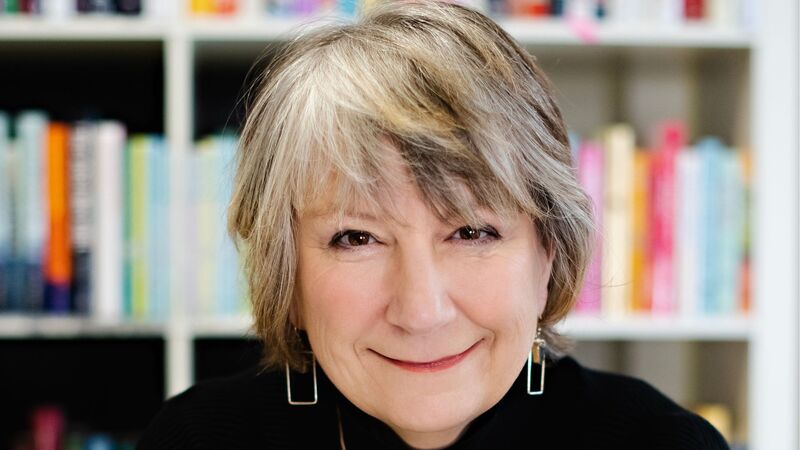You are viewing your 1 free article this month. Login to read more articles.
Tributes pour in for 'exceptional' Helen Dunmore
Tributes have been pouring in for poet, novelist and children's author Helen Dunmore, who died of cancer yesterday (5th June), aged 64.
Penguin Random House, which published Dunmore for over two decades, said it was "devastated by the loss of one of our best-loved authors". A spokesperson said she had been "an inspirational and generous author, championing emerging voices and other established authors" as well as "a very dear friend" to many at the company and the wider literary community.
She will be remembered for the depth and breadth of her fiction, which PRH characterised as "rich and intricate, yet narrated with a deceptive simplicity that made all her writing accessible and heartfelt". Dunmore’s writing stood out for the "fluidity and lyricism of her prose, and how well constructed all her narratives were," the publisher said.
She won the inaugural Orange Prize for Fiction in 1996 for A Spell of Winter (Penguin) and the McKitterick Prize for debut novelists in 1994 for Zennor in Darkness (Penguin). Dunmore went on to become a Sunday Times bestseller with The Siege (Penguin), which in 2001 was shortlisted for both the Orange Prize and Whitbread Novel of the Year, as well as with The Betrayal (Penguin) and The Lie (Penguin) that were inspired by her love of Russian culture, language and literature. Exposure (Hutchinson) was published just last year and her final novel Birdcage Walk (Hutchinson), about a small group of radicals in Bristol at the end of the 18th century, published in March this year, around the same time as the news of her "very poor prognosis" of her health was also revealed.
Selina Walker, Dunmore's editor at Hutchinson, called the author "an exceptional person and an exceptional novelist".
“Helen was very much a writer’s writer and it is no coincidence that her final novel, Birdcage Walk, deals with legacy and recognition: what writers, especially women writers, can expect to leave behind them," said Walker. "She left a legacy of exceptional novels, and the fact that there will now be no more is simply heart-breaking. She was an exceptional person and an exceptional novelist, and her emails – like her writing - were filled with grace and light and sensitivity. I will miss her hugely."
Dunmore's poetry publisher Bloodaxe Books said it was "immensely saddened" by the news of her death. It published her first poetry collection The Apple Fall in 1983 and her last, 10th collection of poetry, Inside the Wave, concerned with the borderline between the living and the dead, at the end of April 2017. It followed The Malarkey in 2012, whose title-poem won the National Poetry Competition.
Many authors have paid respects on Twitter. Tracy Chevalier called her "such a graceful elegant writer and person" and The Essex Serpent author Sarah Perry expressed her sadness saying, "She was light and salt to so many of us. What a loss; what a legacy."
Philip Pullman paid tribute to Dunmore as "a fine writer" and "a warm and generous human being", as did Jonathan Coe, who tweeted: "We have lost one of our finest writers, and one of the kindest and most generous of women."
Crime writer Sarah Hilary said there was no other contemporary writer who had influenced her work as much as Dunmore had and that she was "heartbroken".
The Baileys Prize called Dunmore "inimitable" and English PEN, where Dunmore was a long-standing member, also said it was "so sad" to hear of her passing.
Dunmore was born in 1952 in Beverley, Yorkshire. A graduate of Nottingham High School for Girls in 1970 and subsequently the University of York, she had a lifelong passion for languages and literature in translation. She begun her career in education, teaching English as a foreign language in Finland and later became a fully qualified teacher. She taught literature and creative writing courses for many years at the University of Bristol’s Continuing Education Department, as well as at the Universities of Glamorgan and Bath Spa, and the Arvon Foundation, among others.
She spent three years on the management committee of the Society of Authors, a year as Chair of the Society of Authors, and was elected as a Fellow of the Royal Society of Literature in 1997. She later became a Trustee of The Royal Literary Fund, which supports authors in need of pensions and grants.
There will be a funeral for Dunmore. Enquiries can be directed to Co-op Funeralcare, Westbury On Trym (0117 950 7494).















